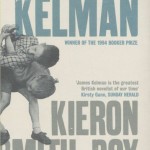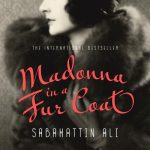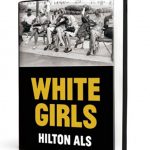In the second instalment of our interview, author Faridah Àbíké-Íyímíde answers readers’ questions about institutional racism, structuring, sobriety and solitude
Support independent, non-corporate media.
Donate here!
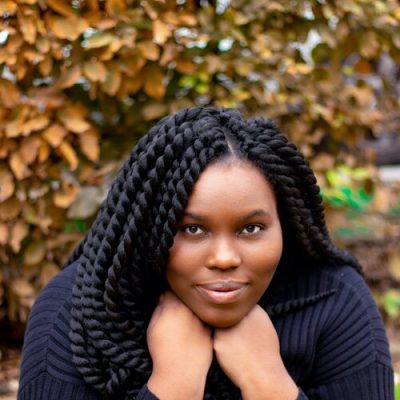
The setting of Ace of Spades is slightly unclear. Sometimes we feel we’re in America, sometimes like we’re in the UK. Why? Originally, I was leaning towards setting it in America because of the voice of the characters and the world. Because a lot of teen dramas take place in America and I really like the voice in them. UK teen dramas are a lot grittier. I wanted it to feel more glamorous and kind of a voice you hear in Pretty Little Liars and Gossip Girl – those types of shows. But then, as I was looking at what I was trying to say about the power dynamics and institutional racism, I realised I wanted to really highlight that this was not an American thing or a UK thing. It was global. You know, institutional racism affects everyone and it’s everywhere. Because we live in a globalised world where we’re all connected in some way. And these institutions operate everywhere. So I really wanted to highlight that we can’t really place blame on one country. It’s really a bunch of countries all scapegoating each other, essentially, trying to find out who’s the worst when really, you can’t compare the kind of the damage of colonialism does. You can’t really compare, which institution is harming people more because the police is just as harmful to me as the education system. One is moulding young minds and telling young minds their value to society, which obviously has really detrimental repercussions and one is profiling and stereotyping people and criminalising people. You can’t compare the effects of that so I really wanted Ace of Spades to shine a light on the fact that the UK isn’t innocent, and neither is America and neither is any country that has perpetuated these things.
You bring up the issue of micro-aggressions – these very small, subtly racist things. Is that something you set out to do or did it come through the process of writing? People describe micro-aggressions a lot like death by 1000 tiny paper cuts. It’s a natural part of life for a marginalised person where you might not have a police encounter, but you will, most probably have an experience of micro-aggressions. I really wanted to show how these comments and seemingly insignificant things that happen build up and affect people in different ways. You see both of the characters going through a lot mentally. And it’s all a product of what they’re experiencing constantly. It’s not always someone attacking you physically, or doing this big thing. Sometimes it’s seemingly small things that build up and just create this monster. Micro-aggressions are often like written off by people but it’s so important to notice when you’re affecting someone on that level, because asking to touch someone’s hair or commenting on their the way they look in terms of stereootypes might seem harmless, but ultimately just makes them feel othered and dehumanises them. I wanted to highlight that, while also talking about the big institutional stuff, because it’s not just one that happens, but both at the same time.
Did you find it a culture shock when you arrived from London at freshers’ week in Aberdeen? Yeah, I’m a Muslim. I feel like I had no idea that university and probably also adulthood was so centred around drinking and going for drinks and everything in order to make friends and connections. I found that really difficult to adjust to, because I don’t drink and don’t like environments where drinking is happening because it’s usually loud – I’m a quiet person who likes quiet environments.
So you stayed in your room and began the first draft of the book. What was your writing schedule at that time? I would stay in my room. I planned the whole story first, and then I decided to write a certain amount every day after classes. So I’d come home and go to my desk, and stay there until I was tired and then I would go to sleep. Sometimes I’d go to the library to write, just to change the scenery. But yeah, it was good for me. I just thought myself: if I write every day, I’ll eventually have a story. During that time I wanted to just see what I could do with my time since I had so much of it.
Do you think writers need to be good at solitude? Novelists needs to be really good at working alone. Because a lot of writing is just working by yourself and constantly trying to figure out really complex, questions about structure. There’s no real right answer. You kind of have to decide when you’ve reached a good solution. I think that’s why some people prefer screenwriting because they prefer writers’ rooms where there’s a bunch of people they can work with. So I think novelists definitely have to have some type of ability to work alone. Once you get a publishing deal, you have a whole team you can work with, but it’s still a lot of writing alone because the first draft is on your own without an editor.
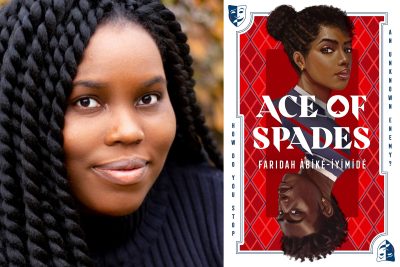
It must feel like a long time since you finished the book. Are you working on something new? Ace of Spades probably would have been ready to publish in early 2020. It’s been maybe four years since I finished the first draft. But it’s interesting because a lot of authors talk about this. You’re always such a different person than you were when you’re writing your previous book because of how long things take to publish. Sometimes you’ve changed eras in your life. Like I was a teenager when I wrote Ace of Spades now I’m not! I was 18, 19 and now I’m 23. I feel like such a different person. I’m such a different writer now, but I just think that it’s a really cool time capsule of who I was when I was writing. So yeah, I’m writing something new, but it’s so different because of the gap in time.
Your first book made it to the New York Times Bestseller list. How did you cope with this sudden, huge success? The author Sally Rooney said something recently that really resonated with me. She was talking about how she’s very happy that she’s successful. But she hated the spotlight because it does really mess with mental health. And so I’m really, really happy that the book has done well and that a lot of teenagers can read it and relate to the messages or just enjoy it but also that the dream I always wanted of being a writer, has come true. And, when when your book is successful, usually you can get another book, do another one after that, but as Sally Rooney really was saying, there are downsides whereby a lot of that pressure can really affect your mental health. I loved her speaking about that.
How did you build up the confidence to speak publicly in interviews and big book events? The pandemic helped. I wouldn’t have been able to do the same type of events if it was in person. Something about having the barrier of a computer screen and being able to be comfortable at home definitely have made me feel a lot better about doing these events. Building up confidence definitely came from like you know, working with a really great media trainer. She helped me with speaking and also considering the type of events that I would prefer to do and setting boundaries . Not saying yes to everything is a kind of power.
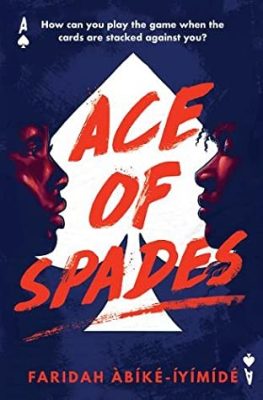
The last few years have seen the rise of populism and racism being normalised and accepted into the mainstream. Do you think literature can play a role in creating a world which nurtures tolerance, kindness and understanding? Yeah, I think that books can definitely change the way you see people and also understand people’s circumstances. I really do hope that books or media could be trusted to do more than tolerate because I think tolerance is so different from acceptance. Tolerance is like you know, putting up with someone think acceptance is almost what I would want media to do but even that I always say like, I don’t want my books to be educational for anyone. Trying to educate people isn’t really always good for you because it requires so much energy that I don’t have. Also I believe that education should be left to educators, people that have trained in that. I’m always just trying to reflect real life, to show people that this is a valid experience you’re having, and you’re not alone in this experience.
There’s been such a lack of diversity in literature since literature was a thing in the West anyway…I think it’s so important that we see these characters living their lives because when people aren’t main characters and when they aren’t in these stories, it’s almost like black people don’t exist in real life and don’t even have their own stories. I get messages from teenagers all the time talking about their reactions to my story. One of them said that seeing the main character, made them feel like they were a main character because often they felt like they were just a side character in someone else’s story. That was so sad to hear because they’re a real person. Seeing that they were feeling means that writing is so worth it, to release these emotions and live through hardships again, through these characters. So it was all worth it because people are healing from reading about these type of characters.
The book contains many really moving descriptions of isolation and sadness, some very dark and desolate feelings. At the same time you manage to reach out to people, to balance darkness with light. I was thinking about what it was like to be a teenager. I feels like no one really understands you or is listening to you. So I tried to channel that but also using what I learned from going to therapy and also from just growing up. Trying to have lasting message that there’s still hope throughout the book. I think I’m always talking about dreams and aspirations and feeling stuck. I wanted to say: ultimately, you’re not going to be in this place forever. I think that’s also why I wanted to include the epilogue because it showed it’s not just this , fruitless hope. There will be literally a better life for all the characters, years later.
Interview by Patrick Small
Questions sent in by Sara (Edinburgh) Mark (Glasgow) Tom and Gabriel (both London) Jen (Dundee) Eva (Bristol) Mary (Boston) Will (Berlin) and Laura (Basel).
To suggest an author for Product readers to interview please e mail info [at] productmagazine.co.uk or tweet @scottishproduct





